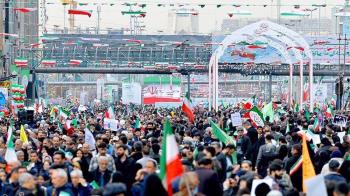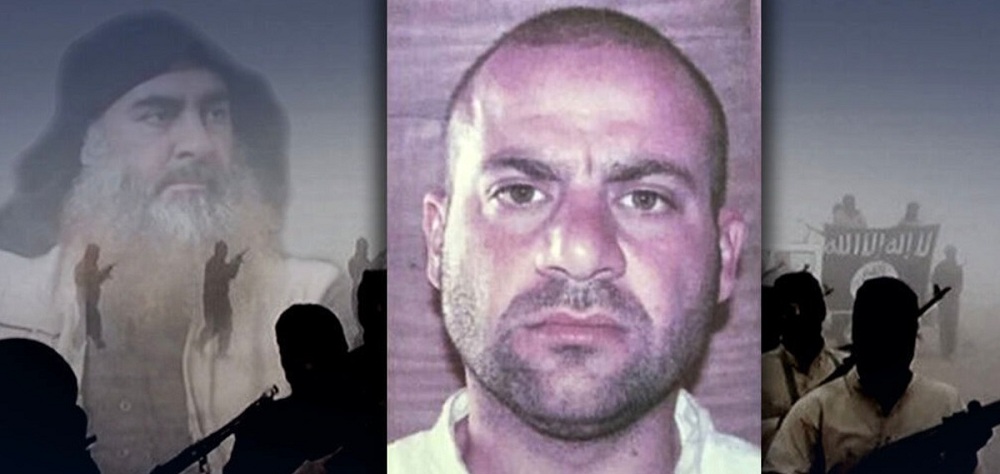Alwaght- The death of the ISIS leader in a US military operation in Syria has been making news headlines worldwide over the past few days.
The US president Joe Biden in a statement on Friday published on the White House website talked about the death of the ISIS top leader, adding: "Last night, operating on my orders, United States military forces successfully removed a major terrorist threat to the world: the global leader of ISIS, known as Hajji Abdullah."
How al-Qurashi became ISIS leader
Ever since the assassination of ISIS leader Abu Bakr al-Baghdadi in 2019 and the announcement of Abu Ibrahim al-Hashimi al-Qurashi as his successor, security and intelligence agencies stepped up their operations to identify the new and unknown leader.
According to media reports about al-Qurashi, the real name of the slain second ISIS leader is "Amir Mohammad Saeed Abdul Rahman Al-Mawla", who was referred to as a "professor" and "destroyer" within the group's structure.
He is said to have been born in 1976 in the Tal Afar area, 70 kilometers from the Iraqi city of Mosul, to a Turkmen family.
He was an officer in the Iraqi army during the Ba'athist regime rule, studied at the Faculty of Islamic Sciences in Mosul, and joined Al-Qaeda in 2003, the year the American invasion toppled Saddam Hussein rule.
Al-Qurashi was then appointed Al-Qaeda's religious and legal envoy, and was arrested by the Americans in 2004 and then in 2008, during which time he met al-Baghdadi in Buchan Prison.
When al-Baghdadi headed al-Qaeda in Iraq in 2010, al-Qurashi was with him. They then separated from al-Qaeda and established the "Islamic State of Iraq and Syria, or ISIS, or Daesh in Arabic.
US goals behind al-Qurashi elimination: Why did the intelligence piece burn?
Since the birth of the ISIS terrorist group in Syria and Iraq in 2014, the role of American, Israeli, and Arab intelligence agencies in establishing, organizing, and sponsoring this group has always been a point of question, with some Western and American media and officials making revelations on the case. Last year, for example, the Washington Post reported that the new commander of the ISIS, after al-Baghdadi, had a history of extensive cooperation with US security services and provided them with important data.
According to the report, a figure, code-named M060108-01, is in fact "Abu Ibrahim al-Hashimi al-Quraishi," who was held captive by US forces in Iraq in 2008.
The report quoted a US official as saying that al-Qurashi was "an exemplary prisoner with good cooperation" with US forces at the time of his arrest.
The Washington Post added he had worked hard to portray himself as a useful figure for Americans during his detention and had worked with them to identify many of those arrested.
In addition, the formation of ISIS by the US intelligence in a secret operation dubbed "beehive" is mentioned both in the diary book of former US Secretary of State Hillary Clinton and the leaks of classified documents by Edward Snowden, a defected intelligence officer of the US National Security Agency (NSA).
Now here is the question: Why did the US eliminate its practical piece?
Rebuilding the justifications about stay in Syria and Iraq
If we buy the Biden's claim that the top ISIS leader was killed in a US military operation in Syria, in order to understand the purpose of his removal, we must first consider the timing of the operation. The White House has been widely publicizing the killing of al-Qurashi, raising the issue of the risk of ISIS returning in recent weeks and months, especially after the escape of large numbers of ISIS captives held in US-aligned Kurdish-controlled prisons in northern Syria a fortnight ago.
Meanwhile, political and military pressure on US occupation forces in Syria and Iraq for withdrawal has been on the rise. Washington has always used the pretext of fighting terrorism to defy the international and local criticism against its largely illegitimate and unsettling presence in Iraq and in recent years in Syria. This is while the ISIS elements are running rampant in northern Syria and Syrian-Iraqi border areas. Promoting al-Qurashi death as an intelligence and military triumph is meant to rebuild the justifications of military presence in the two Arab states and its effectuality in the battle against terrorism.
Al-Qurashi death of internal consumption to Biden
There is no doubt that another reason Biden ordered the operation to kill al-Qurashi is for domestic consumption. Biden entered the White House with 57 percent of the popularity rate. Various challenges he faced during over a year of his presidency caused his popularity to plummet to an average of 48.9 percent, according to polls. His popularity also has dropped from 90 percent to 80 percent among his fellow party members.
Another face of the domestic consumption of the recent operation is a race with his predecessors about putting up a commander face who repels great security threats to the American national security. Obama announced the assassination of Al-Qaeda leader Osama bin Laden in 2011 and Trump ordered the assassination of Abu Bakr al-Baghdadi in 2019, the media coverage of both of which featured presence of Obama and Trump watching the operation being conducted from the White House Situation Room.
Heroizing the US on world stage
For years, Washington has intervened militarily around the world and waged numerous devastating wars under the guise of defending the human rights and fighting terrorism, but with the primary goal of advancing its hegemony and pressuring its key rivals. Wars, like those waged in Afghanistan and Iraq, that brought nothing but death, displacement, destruction, and instability to the people of these countries.
Now that the US in a move heavily disparaged even by its allies left Afghanistan and signed a peace deal with the Taliban, which proved the emptiness of the claims about fight against terrorism over the past two decades, the White House strategists with a tremendous media uproar eliminated one of their terrorist pieces to rebuild the US military's damaged image and re-promote the sham fight against terrorism.



























